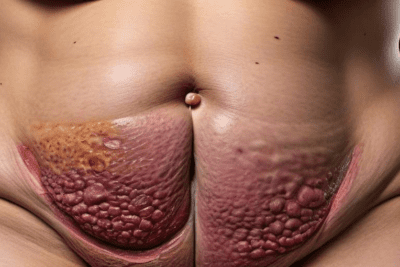
Sweet Poison: Unveiling the Health Complications of Excessive Sugar Consumption

Sweet Poison: Unveiling the Health Complications of Excessive Sugar Consumption
Introduction
Welcome to our comprehensive guide on the health complications of excessive sugar consumption. In this article, Sweet Poison: Unveiling the Health Complications of Excessive Sugar Consumption, we delve deep into the effects of consuming too much sugar and shed light on the detrimental impact it can have on our well-being. By understanding the risks associated with excessive sugar intake, you can make informed choices to protect your health and overall quality of life.
The Sugar Epidemic
In today's modern society, sugar has become a pervasive and addictive substance. From carbonated beverages to processed snacks, sugary foods and drinks surround us, tempting our taste buds and luring us into unhealthy habits. However, the excessive consumption of sugar can lead to a range of health complications that should not be taken lightly.
Weight Gain and Obesity
One of the most evident consequences of excessive sugar consumption is weight gain and the development of obesity. When we consume high amounts of sugar, our bodies convert it into glucose for energy. However, when we exceed our energy needs, the excess glucose is stored as fat. Over time, this accumulation of fat can lead to weight gain and increase the risk of obesity, which is associated with a host of health issues, including diabetes, heart disease, and certain cancers.
Diabetes and Insulin Resistance
Excessive sugar consumption is closely linked to the development of type 2 diabetes and insulin resistance. When we consistently overload our bodies with sugar, our pancreas produces more insulin to regulate blood sugar levels. Eventually, this constant demand for insulin can lead to insulin resistance, where our cells become less responsive to insulin's effects. This condition significantly raises the risk of developing type 2 diabetes, a chronic disease with severe health implications.
Cardiovascular Complications
High sugar diets can have a detrimental impact on heart health. Research suggests that excessive sugar consumption can increase blood pressure, promote inflammation, and contribute to the development of heart disease. Furthermore, diets rich in sugary beverages have been associated with a higher risk of developing conditions such as hypertension and high cholesterol levels, both of which can lead to cardiovascular complications.
Dental Problems
Sugar is notorious for its negative effects on oral health. When we consume sugary foods and beverages, the bacteria in our mouths feed on the sugars, producing acids that erode tooth enamel and lead to cavities. The more frequently we consume sugary substances, the greater the risk of dental decay. Poor oral health not only affects our ability to eat and speak properly but can also contribute to systemic health issues if left untreated.
Mental and Emotional Well-being
While the physical health implications of excessive sugar consumption are widely discussed, the impact on mental and emotional well-being should not be overlooked. Research has shown that high sugar diets can negatively affect mood, increase the risk of depression and anxiety, and impair cognitive function. The temporary spike in energy levels after consuming sugar is often followed by a crash, leaving individuals feeling fatigued and emotionally drained.
Breaking Free from the Sweet Poison
Now that we've explored the health complications associated with excessive sugar consumption, it's crucial to address strategies for reducing sugar intake and establishing healthier habits:
- Be mindful of hidden sugars: Read food labels carefully and watch out for hidden sources of sugar, such as corn syrup, dextrose, or maltose. Opt for whole, unprocessed foods whenever possible.
- Choose healthier alternatives: Swap sugary snacks and beverages for fresh fruits, vegetables, and water. Satisfy your sweet tooth with natural alternatives like dates or berries.
- Cook your meals: Preparing your meals at home gives you control over the ingredients you use and helps you avoid hidden sugars found in restaurant or processed foods.
- Reduce sugary drinks: Replace sugary sodas and juices with infused water, herbal teas, or homemade fruit-infused beverages.
- Practice moderation: It's okay to enjoy sugary treats occasionally, but moderation is key. Treat yourself in small portions and savor the experience without overindulging.
- Educate yourself: Stay informed about the sugar content in various foods and beverages. This knowledge empowers you to make healthier choices and prioritize your well-being.
Conclusion
Excessive sugar consumption poses a significant threat to our overall health and well-being. From weight gain and obesity to diabetes, cardiovascular complications, and dental problems, the risks are numerous. By understanding these health complications and adopting healthier habits, you can take control of your sugar intake and make positive changes that will benefit you in the long run.
Remember, your health is your most valuable asset, and it's worth prioritizing. Take steps today to reduce your sugar consumption and embark on a journey toward a healthier, more vibrant life. https://diabetescurenow.com/









